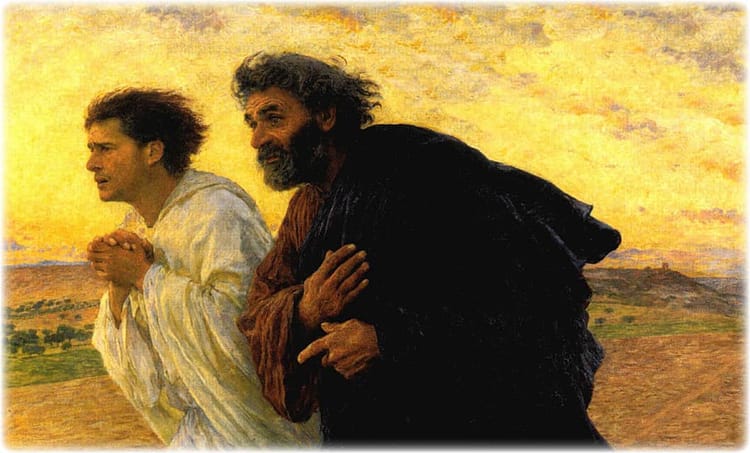Living the Gospel (1 Peter 1:13-25)

It was a proud moment. The pastor had just commissioned eighty-three new members. As the pastor descended the steps from the platform, the newly initiated left and the sermon began.
“This is great, isn’t it?” he began. “But before we get too giddy about new members, let me ask you a question. Why should we bring eighty-three new people into something that is not working?”
“Something is wrong,” he continued, “and it was been tormenting me for several years. All the formulas, strategic planning, mission statements, and visionary sermons are not making disciples.”
“Where was the personal transformation after all the effort we put into weekend services, Bible studies, small groups, and outreach events? We were engaged in a studied routine of religious activity without change.” (from Bill Hull, Choose the Life)
We believe the Gospel, but most of us would have to admit that we aren’t doing a great job of translating the Gospel into every day life. One study shows that Christians are very much like their non-Christian neighbors in rates of divorce, premarital sex, domestic violence and use of pornography, and are actually more likely to hold racist views than other people. I agree with Bill Hull. “Something is wrong… All the formulas, strategic planning, mission statements, and visionary sermons are not making disciples.”
That’s why I’d like to look at part of a letter written to address this very issue of translating the Gospel into action. The letter is 1 Peter. The first half of 1 Peter 1 tells us about all the blessings of the Gospel that we have received. The second half of 1 Peter 1 tells us how to translate the Gospel into life, so that we live it, not just believe it.
I really have no interest in believing the Gospel without living it, and I hope you don’t either. So let me ask you three questions today from 1 Peter 1. I’d invite you to open your Bibles as we look at this passage and ask these three questions. These are three dimensions that are necessary for living the Gospel.
IN: Are you committed to becoming holy?
Verses 13 to 16 say:
Therefore, with minds that are alert and fully sober, set your hope on the grace to be brought to you when Jesus Christ is revealed at his coming. As obedient children, do not conform to the evil desires you had when you lived in ignorance. But just as he who called you is holy, so be holy in all you do; for it is written: “Be holy, because I am holy.”
We put a lot of emphasis on making a decision to become a Christian, and that is important. I want people to enter into a relationship with God and follow Him.
But sometimes we think it ends there: with a decision and agreement with a set of facts. Peter says that it can’t end there. The Gospel is not a one-time decision. It’s a way of life, and it’s a process of transformation into holiness. So the question is not, “Have you made a decision?” but “Are you committed to becoming holy?”
In other words, Christianity isn’t a one-time decision. It’s a way of life that requires our ongoing obedience.
Peter tells us why we are to be holy: because God is holy. “Just as he who called you is holy, so be holy in all you do; for it is written: “Be holy, because I am holy” (1 Peter 1:15-16). Our lives are to reflect God’s character. God has always been about calling a people to be his so that they reflect his character and are holy just as he is holy.
Peter also tells us how to become holy. “Therefore, with minds that are alert and fully sober, set your hope on the grace to be brought to you when Jesus Christ is revealed at his coming” (1 Peter 1:13). Peter uses a word picture that is lost in the translation. The picture is of a man who is wearing a long robe. To get ready to run, he gathers his long robes and holds them in his hand to prepare for action. Peter says, “Get your minds ready for action. Be alert and ready.” Our part is to prepare ourselves so that holiness is on our agenda, that it becomes our pursuit.
It’s almost like working backwards from the way we will be when Jesus returns to today. We know we’ll be holy one day; our job is to live today in light of that reality. Peter says, “Set your hope on the grace to be brought to you when Jesus Christ is revealed at his coming” (1 Peter 1:13). In other words, “Place your hope totally on the return of Jesus Christ and its results, and live your life in light of that future reality.”
That is the first question I want to ask you today. Are you committed to Christianity that is more than a decision or agreement to a set of facts? Are you committed to making holiness and obedience the pursuit of your life? To make the Gospel a way of life rather than a one-time decision? Dietrich Bonhoeffer said that Christianity without discipleship is Christianity without Christ. Do you commit to becoming holy?
UP: Are you appropriately fearful of God?
Haddon Robinson is a Distinguished Professor of Preaching. He is like the rock star of preachers. He wrote the textbook on preaching. He has been named one of the twelve most effective preachers in the English-speaking world. He’s also tough as nails. He grew up on some of the rougher streets of New York and knows how to scrap. In other words, he really isn’t the type of guy that you want to preach in front of if you’re a preacher. Yet that’s exactly what I had to do a couple of years ago, and I was scared. I knew that I couldn’t fool him, and he wouldn’t be scared to point out what I was doing wrong.
We normally don’t think of being afraid as something good, but there’s a sense in which fear is a good thing. It’s bad to be scared of things that aren’t scary, but I’m glad that I’m afraid of touching a hot stove or of jumping off the top of an apartment building. Fear is a gift when we’re afraid of the right things.
Peter says that we need to be appropriately afraid if we are going to translate the Gospel into life. Peter says in verse 17, “Since you call on a Father who judges each person’s work impartially, live out your time as foreigners here in reverent fear.”
So my second question today is, “Are you appropriately fearful of God?” There’s a reason to be fearful. It’s because we “call on a Father who judges each person’s work impartially.” God is our Father. What is at stake when God judges us is not our eternal destiny or our relationship with him. That is secure. But make no mistake: God judges us according to our work, and he does so impartially. He doesn’t play any favorites when he judges.
There are a couple of senses in which God judges us. One is on the day of judgment, when we will give an account for what we’ve done. But I don’t think that’s what Peter’s talking about here. He’s talking about God’s present discipline. God is the one who is judging us, right here and right now. Hebrews 12:6 says, “The Lord disciplines those he loves, and he chastens everyone he accepts as his child.”
You want to be appropriately afraid of God? Recognize that he sees your whole life, and that he will discipline you in this life. The God who sees our entire loves is the God who judges us out of love.
Peter explains why God takes this seriously. It’s because we have been saved at such a great cost. He writes:
For you know that it was not with perishable things such as silver or gold that you were redeemed from the empty way of life handed down to you from your ancestors, but with the precious blood of Christ, a lamb without blemish or defect. He was chosen before the creation of the world, but was revealed in these last times for your sake. Through him you believe in God, who raised him from the dead and glorified him, and so your faith and hope are in God. (1 Peter 1:18-21)
If I give you the keys to my old beater with 326,000 km on it, you don’t need to be too afraid if it comes back damaged. It’s old and it’s a beater. But if I gave you the keys to a Saleen S7 Twin Turbo, worth over US$670,000, you might be more afraid to drive it. But the Saleen S7 Twin Turbo pales in value to what God has given you, He didn’t redeem you with inexpensive things like silver and gold. He redeemed you with the incomparably precious blood of Christ his own Son, and that’s why he takes seriously what we do with the new life that he purchased for us. So let me ask you: are you appropriately fearful of God who judges what you do with what he’s purchased for you?
Oswald Chambers said, “The remarkable thing about fearing God is that when you fear God you fear nothing else, whereas if you do not fear God you fear everything else.” If you are going to translate the Gospel into life, you need the fear of God. Are you appropriately fearful of God?
OUT: Do you love other Christians deeply?
Last question: Do you love other Christians deeply? Are you committed to becoming holy, are you appropriately fearful of God, and do you love other Christians deeply? Peter writes in verses 22 to 25:
Now that you have purified yourselves by obeying the truth so that you have sincere love for each other, love one another deeply, from the heart. For you have been born again, not of perishable seed, but of imperishable, through the living and enduring word of God. For,
“All people are like grass,
and all their glory is like the flowers of the field;
the grass withers and the flowers fall,
but the word of the Lord endures forever.”
And this is the word that was preached to you.
I don’t have to tell you how hard this is. If you love other Christians, you will be disappointed. But becoming a radical community of Christians who love each other is essential to translating the Gospel into life. Peter tells us why. He says that the community that has been formed by faith is eternal, because it has been formed by the word of God, which is eternal. You can’t become a person who lives the Gospel alone. You need to “have a sincere love for each other, love one another deeply, from the heart.”
What Peter talks about here isn’t just community. I think it goes deeper than that. It’s communitas. Communitas is a word that describes the depth of community that develops among soldiers in battle, or people who are thrown into some sort of crisis together, or even on a short-term missions trip. They develop a super-community, a sense of closeness that’s hard to describe. It even happens on some sports teams. One writer calls it a “community infused with a grand sense of purpose, a purpose that lies outside of its current reality…it describes the experience of togetherness that only really happens among a group of people actually engaging in a mission outside itself” (Alan Hirsch).
In other words, this is the type of relationship we’ll never experience if church for us is only about attending services. It won’t happen if we aren’t engaged in a mission outside the church. This type of community, which is absolutely necessary for living the Gospel, only comes as we enter into genuine, authentic relationship with each other and as we join God in his mission.
These are the three questions I want to ask of ourselves today. Are we committed to becoming holy? Are we appropriately fearful of God? Are we committed to developing communitas, loving other Christians deeply.”
Bill Hull said, “Something is wrong… All the formulas, strategic planning, mission statements, and visionary sermons are not making disciples.” What was missing, what is missing from many churches, is discipleship. What’s missing is translating the Gospel into everyday life. What is needed is repentance from a form of Christianity that doesn’t include these three things.
Today is repentance time. It’s time to say no to Christianity that doesn’t include these three dimensions. It’s time to enter into living the Gospel rather than just believing it in our heads. So let's pray.
Father, we repent of believing the Gospel but not living it. Today we want to commit to being holy, to living the Gospel as a way of life. Make us holy. Make us fearful of your discipline. Build a sense of love and communitas among us. Make us disciples.
Let us never settle for anything less than living these three dimensions: of Christianity as a decision rather than a way of life; of glibness with you rather than fear; of pseudo-community rather than the real thing.
We pray these things for your glory, in Jesus’ name. Amen.





